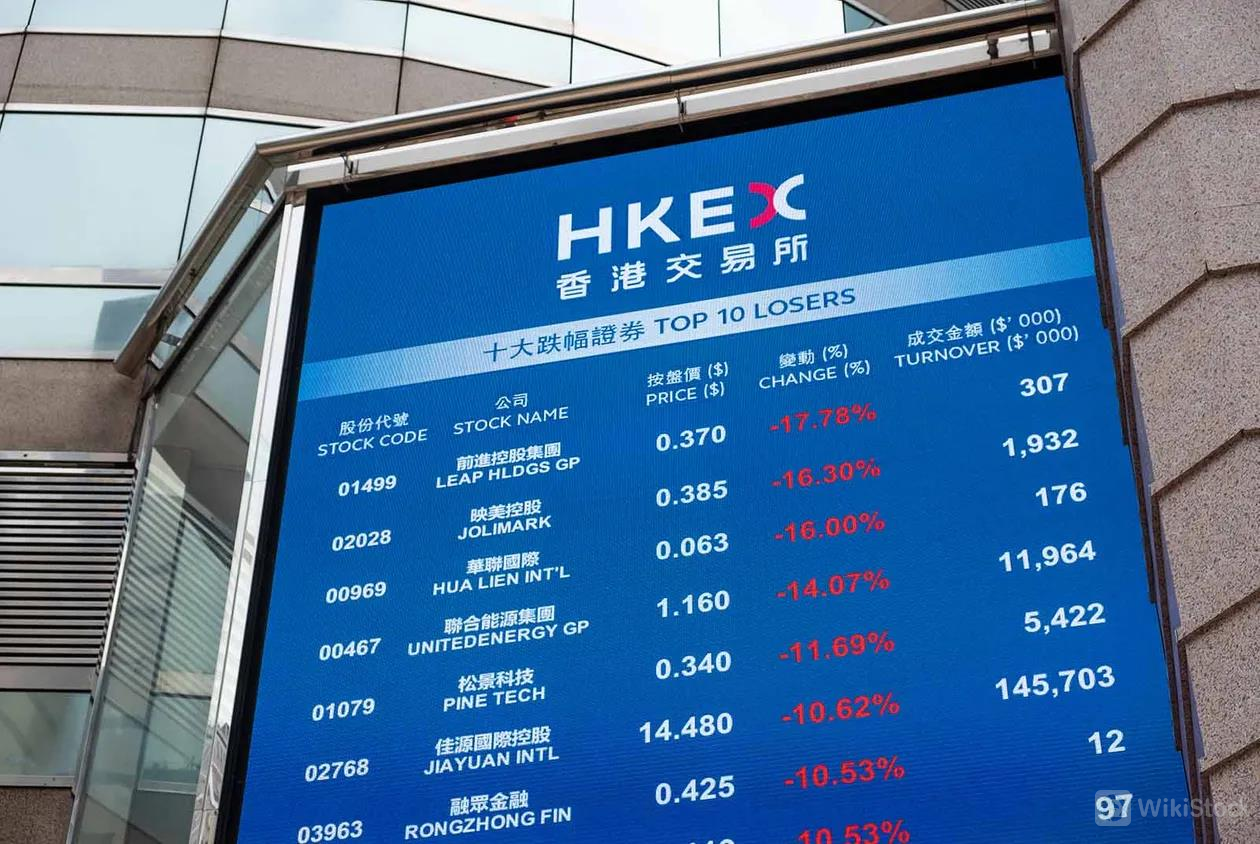恒生指數連續第二天下跌,收盤下跌301點
儘管中國大陸實施了財政刺激政策,但恆生指數(HSI)並未獲得顯著提振,連續第二天下跌,收盤下跌301點,交易量減少。

圖片來源:cw
中國內地最近宣布的財政刺激政策缺乏刺激經濟增長的直接措施,令市場感到失望。人民幣貶值至三個月低點,十月份的CPI增長接近零,反映持續的通縮壓力。香港股市開盤下跌並繼續下滑,恒生指數在早盤期間跌至20,151.38點的最低點,中國企業指數也跌至7,242.97點的最低水平,兩者均為自10月18日以來的最低水平。整體市場成交量下降,而南下資金流入則標誌著四天以來的最高淨流入。
恒生指數表現
恒生指數今日開盤下跌470點,波幅在354點範圍內波動,觸及最低點下跌576點。指數收盤下跌301點,或1.45%,至20,426點,成交量為2043億港元,較前一日下降12.34%,為11月5日以來最低。中國企業指數下跌105點,或1.42%,至7,355點;恒生科技指數下跌0.35%,收報4,651點。
藍籌股和科技指數概況
在藍籌股中,有14隻上漲,62隻下跌,6隻持平。最大的上漲者是中升集團(0881),漲幅21.41%,收報18.94港元,而最大的下跌者是新鴻基地產(0016),下跌5.47%,收報78.7港元。在科技指數中,有13隻上漲,17隻下跌,華虹半導體(1347)上漲最多,漲幅7.21%,而ASMPT(0522)下跌最多,下跌4.02%。
市場技術和南下資金動態
恒生指數跌破其10日移動平均線(20,612.69點)和20日移動平均線(20,551.62點),而恒生科技指數也短暫跌破了這兩個平均線。南下資金淨流入達98.65億港元,逆轉了前一個交易日的單日流出,並標誌著自11月6日以來的最高淨流入。
免責聲明:本文觀點僅代表作者個人觀點,不構成本平台的投資建議,本平台不對文章信息準確性、完整性和及時性作出任何保證,亦不對因使用或信賴文章信息引發的任何損失承擔責任
